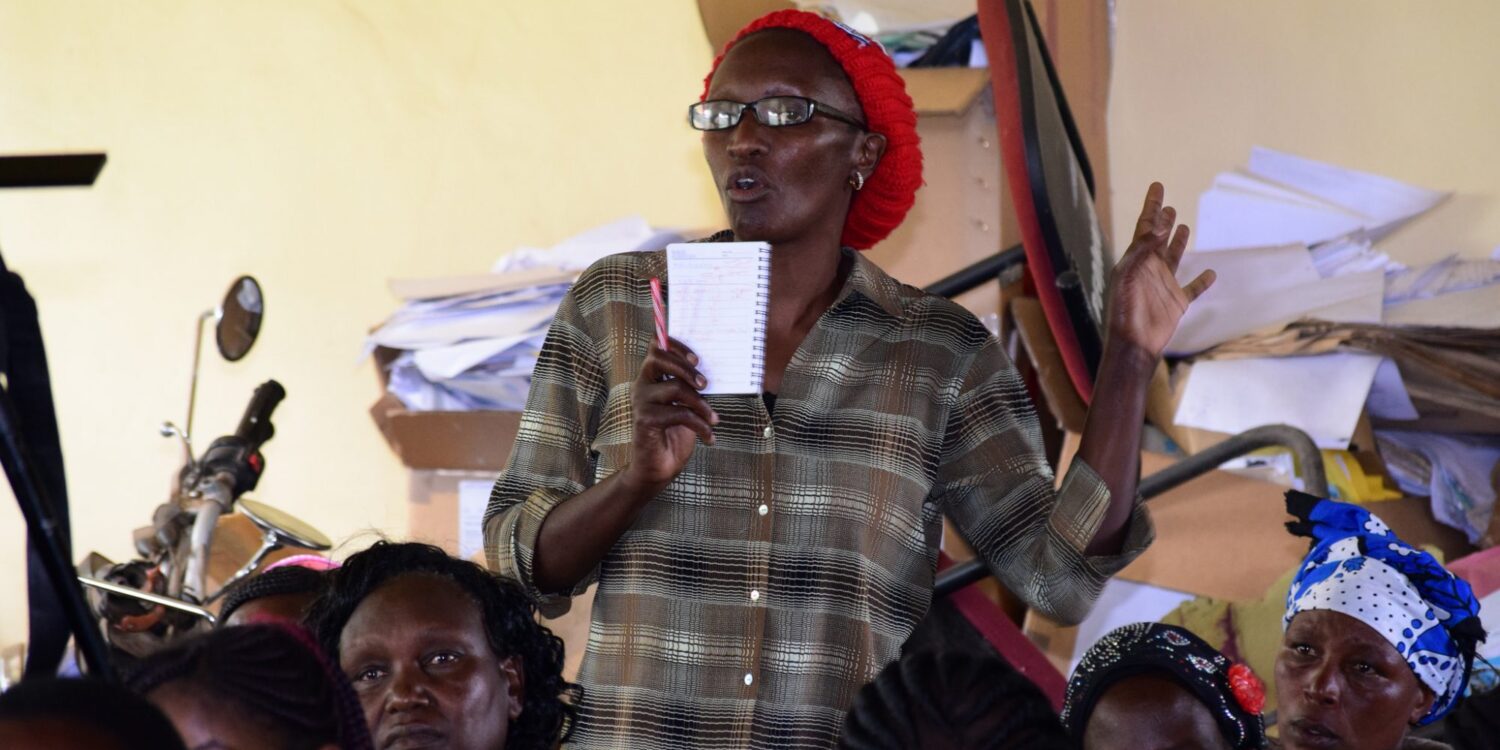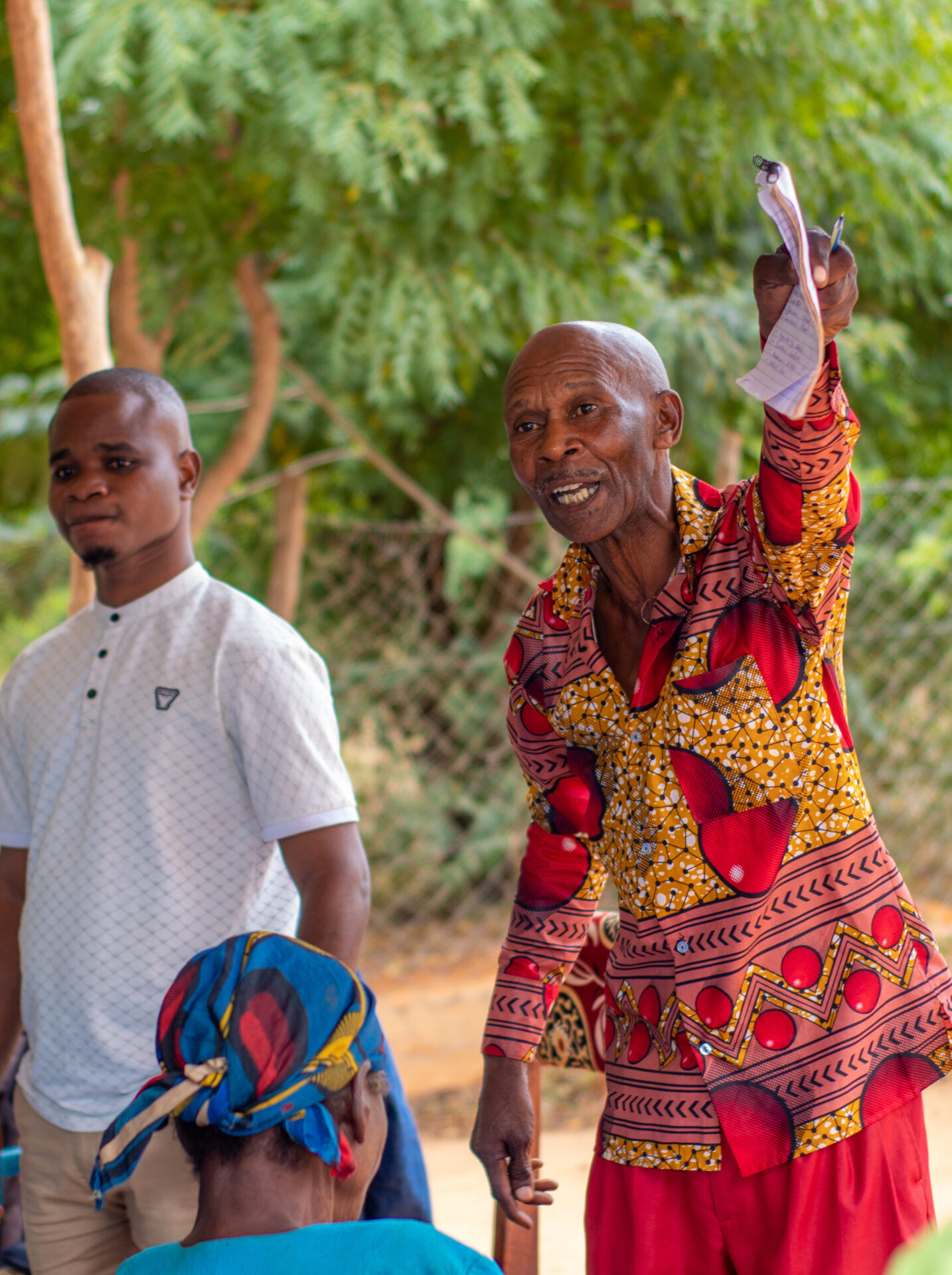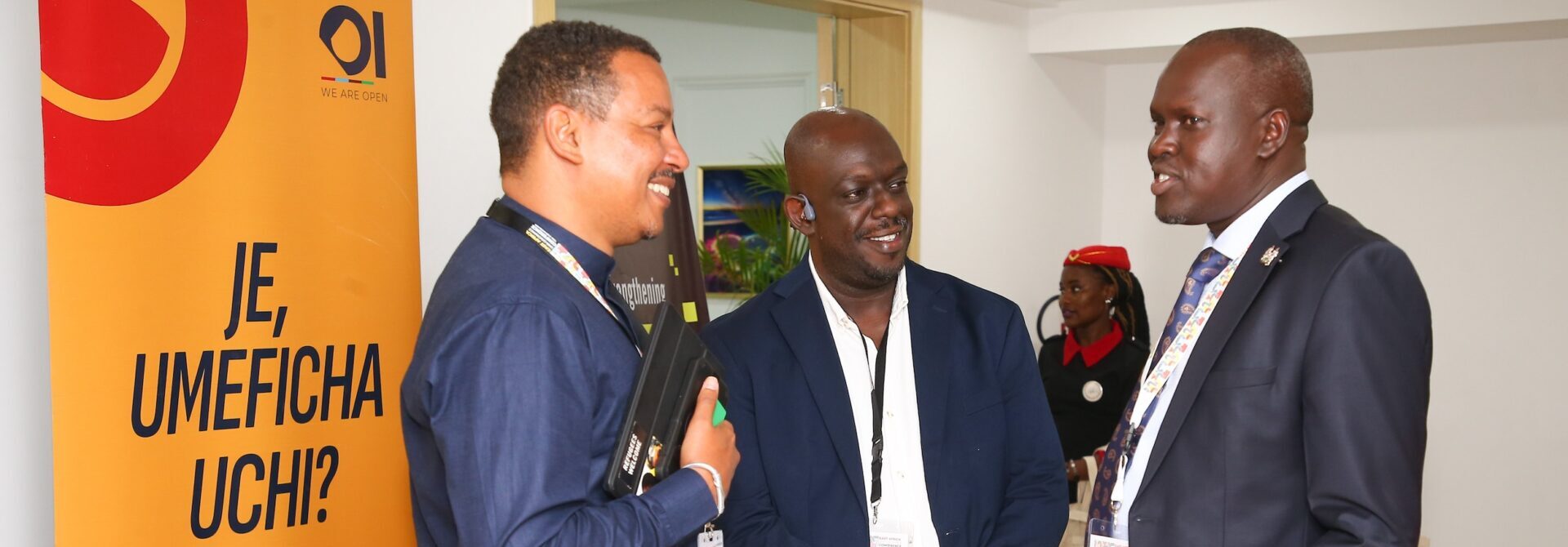Yesterday, working with the administration officials in Nakuru North sub-county, led by the Deputy County Commissioner, Kisilu Mutua, we held the Agriculture Data Fair with 200 farmers at the sub-county Headquarters in Bahati Location. The event kicked off at 9am. Of the farmers who were present 60% were male and 40% were women.


The Open Institute has been working with farmers from two locations in Nakuru North sub-county i.e. Bahati and Kirima Location to see how data can be used to enhance their agricultural performance. The open institute has always held the position that if citizens are equipped with knowledge about themselves using data they are in a better position to understand themselves and their issues in order of priority. As a result of them understanding themselves better they are then in a better position to advocate for their needs from a fact driven point of view.
The communities from these two locations have been collecting Agricultural data over the past few months on agricultural production, Markets and farm inputs. The Open Institute thereafter digitized the data collected and did an analysis of the data. After which a data fair was held to showcase the findings of the data collected.
After Opening remarks from the Area chief of Bahati location Mr. Paul Ndugata and Madam Zipporah, the Assistant County Commissioner, Benjamin Charagu from the Open Institute proceeded to showcase the findings of the data collected.
Data Insights from Bahati Location


Bahati location is divided into 3 sub-locations i.e Bahati, Bibirioni, and Chania sub-locations. 51% of the households interviewed said they do farming, either crop or livestock farming. The data showed that majority i.e 66% of the households who farm owned the land they used for farming while 34% rented land.
The number of men who own land is more than 2 times that of women with over 68% of male landowners, compared to 32% female landowners. The disparity is ostensibly caused by negative cultures which have in the past impeded women from inheriting land despite the Kenyan constitution supporting the right for women to have access, own and inherit land. Increasingly however, anecdotal indications are that more women are starting to buy land for themselves in other areas.
Another interesting insight that came from the data was, more women than men who are 50 years and above owned land, i.e 58% of women this age own land while 37% men owned land. It came out in conversation that majority of these women inherited these lands from their spouses after death, since women tend to live longer than men. A high number of people 61% from Bahati location did practice both livestock and crop farming, 26% did crop farming exclusively while only 13% did livestock farming exclusively.
It was evident that majority of the farmers from Bahati location were small scale farmers since more than half 54% of them practiced subsistence, 38% of did both subsistence and for profit and only 8% did farming for profit. This is because majority of the farmers cultivated small plots of land below ½ acre.
The need for consolidation of agricultural land through cooperatives and groupings of farmers with similar interest was stressed, as the farmers observed that it was difficult for them to reap maximum benefits from the small parcels of land. In the discussions as the farmers reviewed the data, there was observed value in working together to manage larger farms so as to benefit from economies of scale – and to improve their negotiating position in the marketplace. The market data showed that majority of the farmers 91% travelled less than 5KM to access their markets – mainly because they depended on brokers who come to the farm. 87% of these farmers target local markets to sell their produce, while only 13% target international and country wide markets.
Kirima Location
Kirima location comprises of two sub-locations; Kirima and Wanyororo sub-location.
The data from Kirima location similar trends to that of Bahati location. Data collected in Kirima location was from 2,204 households.
Majority (70%) of the households male led while 30% were female led. 75% of the households in this location practice Agriculture. A higher number of farmers from Kirima location own the land they farm in compared to Bahati Location. 85% of the farmers won the land they farm in while only 15% rent. Like in Bahati, men owned more land in which they farmed (66%), compared to the number of women 34%.


64% of these farmers practice both crop and livestock farming, 34% crop farming exclusively while only 4% did livestock farming. “The number of livestock farmers in Kirima location was low because cow feeds such as napier grass is hard to access”, stated a farmer.
Similar to Bahati more women than men in the age of 50+owned land, i.e 58% women own land at this age compared to 37% men. A lot of the farmers in this location are small scale farmers since majority own less than ½ acre. Given the sizes of their lands majority 86% of the farmers in Kirima location targeted local Markets while 14% target international and country wide markets. Same as their counterparts 64% of these farmers sell their produce through brokers while 36% take their produce personally to the market.
Having gone through the data the farmers were more enlightened about their situations and in a better position to find solutions for their problems. The farmers sat together to consider the data and to determine for themselves what would help increase their agricultural performance.
Farmers from each sub-location agreed to come together to do projects such as poultry farming together. Also they had suggestions of how they thought the government both at county and National level would help them improve their agricultural practices. These were;
- Have the government give them access to agricultural officers who would give them advice on best agricultural practices.
- Have an irrigation scheme for when there is shortage of rainfall.
- Build storage facilities for the farmers.
There was an indication of how the youths from these two communities show little to no interest in Agriculture. This is a reflection of how Nationwide in Kenya fewer young people aspire to be farmers. Instead they aspire to move to cities to seek white color jobs. This is because most youths believe that they would make a larger income from white color jobs as compared to agriculture thus they are ignorant to join Farming as a way of making a living. Lack of knowledge on agriculture also impedes most youth from joining the agriculture.
Members of the Peace Corps, a unit of the Administrative Police committed themselves to working more to sensitize the youth to take up farming as an economic activity, which they believed would in turn help strengthen their peace efforts.
The data fair in the end turned to be a successful event for both the farmers and all the stakeholders with the farmers having understood the value of data and how it can be used to enhance their Agricultural production. They also realise opportunities they can take advantage of such opportunities to more income for their households.
***
It is evident that Agriculture plays a major role in African economies and livelihoods. Enhanced Agricultural performance is important to growth and poverty reduction through its direct impact on: Job creation and increased opportunities to a large extent for women and youth, Food security and improved nutrition. It is to this end The Open Institute has partnered up with the Africa Lead program, which is the primary Feed the Future’s (U.S. Government’s global hunger and food security initiative) capacity building program in sub Saharan Africa. The program works to help realize Feed The Future’s and the African Union’s Comprehensive Africa Agriculture Development Program (CAADP) goals.













